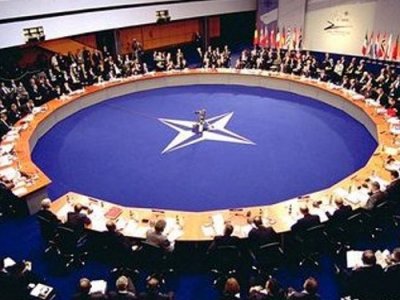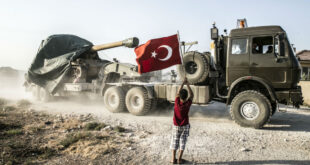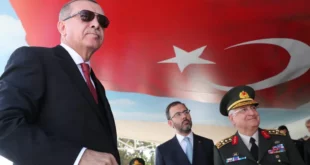 The current NATO secretary general steps down on July 31 and his successor is expected to be named at a NATO summit on April 3 and 4.
The current NATO secretary general steps down on July 31 and his successor is expected to be named at a NATO summit on April 3 and 4.
Turkey has not decided whether to back Danish Prime Minister Anders Fogh Rasmussen as the next NATO chief, Turkish President Abdullah Gul said on Tuesday.
The current NATO secretary general, Dutchman Jaap de Hoop Scheffer, steps down on July 31 and his successor is expected to be named at a NATO summit on April 3 and 4.
“My friends (advisers) are working on this… When a decision needs to be made a decision will be made,” Gul told reporters through a translator during a visit to Baghdad.
Predominantly Muslim Turkey could block Rasmussen’s candidacy, given concern over his past stance on Turkey and a row over Danish cartoons of the Prophet Mohammad. The appointment is by consensus of NATO members.
Turkish diplomats told Reuters the NATO appointment had not yet been discussed or decided at the top level, and speculating on how Turkey would decide was premature.
“We have not taken a position yet. Talk of one is premature. When we decide we will take the position of what is in Turkey’s interest and in the interest of NATO as a whole,” a Turkish diplomat, who declined to be named, told Reuters.
Turkey is upset that Denmark has allowed a pro-Kurdish militant television station to broadcast from Denmark, and by Rasmussen saying in 2003 that Turkey would never be a full European Union member. Turkey is a EU candidate.
Turkey is concerned that at a time when NATO will assume responsibilities in Afghanistan, a secretary general with such an approach could affect the alliance’s relationship with the Muslim world.
“The Turkish people were very upset at his comments and actions,” a diplomat said.
The cartoon row erupted in 2006 after Danish newspaper cartoons, including one that depicted the Prophet Mohammad with a bomb in his turban, were reprinted in European media.
Rasmussen refused to apologise for the cartoons, which sparked riots and attacks on Danish embassies in several Muslim states. Some Western governments defended publication of the cartoons in the name of freedom of expression.
 Eurasia Press & News
Eurasia Press & News



